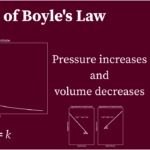Recent Posts
-
Five Week, Non-Religious, Secular Zoom Friendly to Buddhists in Recovery
Igor's style and approach is definitely perfect for those of us in recovery who do not want a religious box to fit into. In my personal experience with him, a clarity beyond concepts is readily apparent! That means for people in recovery, I couldn't recommend anyone more highly. If you have trouble affording a course, he'll work it out. According to Igor, the main point is to have fun!
-
How to Take Refuge in Recovery: Being Refuge
To understand what is meant by refuge in recovery, we must first understand and integrate some basic Buddhist principles. Intellectual understanding is not sufficient, but we gotta start somewhere. We discuss the meaning of refuge in Buddhism. It There are many lineages and views to consider! It depends on what the Tibetans call Thowa, or the view that the teaching begins with and is based upon. Believe it or not, there are different views! Today we open a Series on Refuge in Recovery. Our show begins with the reasons why addicts would be motivated to make the move of Buddhist refuge as part of recovery from trauma, and recovery from addictions as it pertains to The Four Noble Truths, The Four Immeasurables and more. Join me for practices integrated with words and sounds on this and all the shows!
-
Easy Does It Dharma; Practices of a Bodhisattva #37 ccl.
If you've ever been to a 12-step meeting, you've probably seen the famous sign, "Easy Does It". Some who've clawed our way out of hell to scratch a morsel of serenity have done so out of sheer force, which can beg the question of how to go easy, when everything has always been hard? Others w/ACEs in recovery may react w/passivity, thus reinforcing a negative action toward ourselves not by what we do, but what we don't do to protect ourselves.
-
Shaman Meditation From Peru w/Charo; Practices of a Bodhisattva #36
Direct from Peru, Charo Verastegui (María del Rosario Verástegui Schmitt), a fellow practitioner of the Chod, as well as indigenous spiritual practices. See past and future books and episodes for more on Chod as the best tool available to cut the root of attachment, which is the root of addiction. Continuing with Practices of a Bodhisattva, #36.
-
Is Suffering Optional?; Practices of a Bodhisattva #35
As addicts in any form of Buddhist Recovery , Dharma Recovery, Refuge Recovery, we try to focus on mindful, compassionate presences in the four moments that Buddha described. Yet, when we have ACEs and are in working with Trauma and Recovery, our resistance seems to persists despite our best efforts. Learn how to apply the Backwards Law, and the Law of Inverse Proportion to release our deepest attachments -even our addiction to suffering.
-
What We Resist Persists, But Resistance is Futile; Practices of a Bodhisattva #34
As addicts in any form of Buddhist Recovery , Dharma Recovery, Refuge Recovery, we try to focus on mindful, compassionate presences in the four moments that Buddha described. Yet, when we have ACEs and are in working with Trauma and Recovery, our resistance seems to persists despite our best efforts. Learn how to apply the Backwards Law, and the Law of Inverse Proportion to release our deepest attachments -even our addiction to suffering.
-
Release Your Anger; Practices of a Bodhisattva #33
We're told in 12-Step meetings that anger is a dubious luxury for "normal" people. Yet it continues to arise and cause problems no matter how long we're sober. How can we deal with the root our anger as Buddhists in recovery to find compassion, peace and ease?
-
Episode 075: How to Give the Gift of Presence; Practices of a Bodhisattva #32
The 12-Step Buddhist Podcast - Episode 075 Give the Gift of Being Presence what is the best thing that we can gift each other? we discuss the mahayana *(greater) path of dharma, as it applies to recovery from addictions, at any stage. to overcome the root of our addiction, we utilize brain science, trauma psychology and buddhist practice. in this episode, we will learn and do a practice that considers how to offer something extraordinary.
-
Episode 074: Being Present w/Loss and Grief; Practices of a Bodhisattva #31
The 12-Step Buddhist Podcast - Episode 074 Being present with loss and grief. while loss is universal, the experience of grief is individual. it cannot be compared to previous experiences, or those of other people. once we own our own process, grief and loss become part of the path. easier said than done, but this is the path of bodhisattvas, yogis and Buddhists in recovery.
-
Episode 073: ***25 YEARS SOBER***, When the Present is the Past
The 12-Step Buddhist Podcast - Episode 073 “The essence of trauma is that it is overwhelming, unbelievable, and unbearable. Each patient demands that we suspend our sense of what is normal and accept that we are dealing with a dual reality: the reality of a relatively secure and predictable present that lives side by side with a ruinous, ever-present past.” (Van der Kolk, 2014, p. 195)

Translate
Photo courtesy @dan_cey_

Topics of Interest








